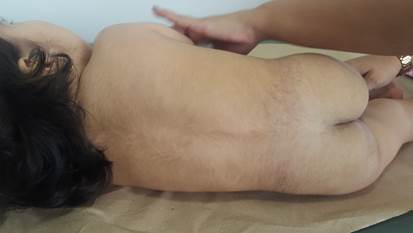Wiedemann-Steiner syndrome with a novel pathogenic variant in KMT2A: a case report
Abstract
Case Description:We report the case of a one-year-old girl who was diagnosed with Wiedemann-Steiner Syndrome based on the identification of a novel de novo frameshift mutation in the KMT2A gene by whole exome sequencing and supported by her clinical features.
Clinical Findings:KMT2A mutations cause Wiedemann-Steiner Syndrome, a very rare genetic disorder characterized by congenital hypertrichosis, short stature, intellectual disability, and distinct facial features.
Treatment and Outcome:Whole exome sequencing identified a novel frameshift variant: c. 4177dupA (p.Ile1393Asnfs * 14) in KMT2A; this change generates an alteration of the specific binding to non-methylated CpG motifs of the DNA to the protein. The genotype and phenotype of the patient were compared with those of earlier reported patients in the literature.
Clinical Relevance:In diseases with low frequency, it is necessary to establish a genotype-phenotype correlation that allows the establishment of therapeutic and follow-up goals. The phenotype comparation with other reported cases did not show differences attributable to sex or age among patients with Wiedemann-Steiner Syndrome. Whole exome sequencing allows identifying causality in conditions with high clinical and genetic heterogeneity like hypertrichosis.
Authors
Downloads
Keywords
- Frameshift mutation
- histone methyltransferases
- hypertrichosis
- intellectual disability
- whole exome sequencing

The copy rights of the articles published in Colombia Médica belong to the Universidad del Valle. The contents of the articles that appear in the Journal are exclusively the responsibility of the authors and do not necessarily reflect the opinions of the Editorial Committee of the Journal. It is allowed to reproduce the material published in Colombia Médica without prior authorization for non-commercial use




















